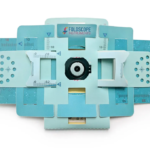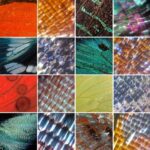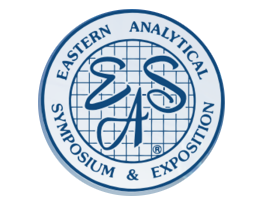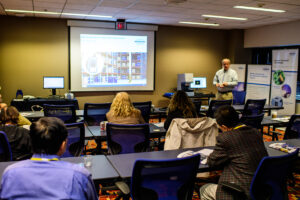EAS’s Outreach Program offers three seminars essentially for high school teachers and students during the November meeting. Each seminar has outstanding presenters from academia and industry. The goal of each seminar is to demonstrate the advantages of a career in chemistry. The 2025 student seminar registration is free for middle & high school students with their teachers; seminars are included in the full-time college student registration fee of $50. Students are encouraged to visit the Exposition after the seminar.
Foldscope Workshop
Join the Frugal Science Movement!
Jay Holmes, American Museum of Natural History
Sunday, November 16, from 1:00 pm – 4:00 pm
Registration Limited to TEACHERS ONLY, 20 spots only
&
Monday, November 17, 10:00 am – 12:00 pm for High School Students
The Microscope is a fundamental tool of science, yet the cost of these tools often prevent it from being available to most of the world for both teaching purposes or for making scientific discoveries. The Foldscope can change this. The Foldscope is a light microscope made from simple components, including a sheet of paper and a lens, that costs less than $1 to build. Its purpose is to be portable and durable, with no electricity requirements, while performing on par with conventional research microscopes (140-times magnification and 2 micron resolution). As part of the “frugal science” movement, the Foldscope enables communities around the world to experience the wonders and excitement of microscopy.
The Foldscope, among other tools in the frugal science movement such as the Paperfuge, Octopi, Planktonscope and Pufferfish, makes scientific tools accessible to all communities around the world. The ultimate goal of the Foldscope is to break down the price barrier between people and the curiosity and excitement of scientific exploration! With the Foldscope, magnified images of a range of samples can be revealed, such as tiny single-celled organisms and bacteria to microscopic details in larger items like insects, fabrics, and biological tissue. The potential of this is tremendous, as no tool is more capable of sparking curiosity in young people than the microscope. When a student looks through the eyepiece of a microscope to see their cheek cells or microbes in pond water for the first time, the enthusiasm for scientific inquiry is palpable. The importance of microscopy for creating the next generation of scientists or scientifically literate citizens cannot be understated. Seeing is believing.
These Foldscope seminars (1 for teachers and 1 for students) will be led by Jay Holmes, Senior Manager of UA Professional Development at the American Museum of Natural History and past president of the New York Microscopical Society (NYMS, https://nyms.org), who will provide highly skilled guided instruction about Foldscope and various applications. By completing this course, participants will quickly master how to use Foldscope, learn microscopy skills, and for teachers, prepare to lead others in scientific explorations. Learn how to use Foldscope from an expert microscopist!
These workshops are being dedicated to the memory of Professor John A. Reffner (1935-2025), an inspirational and highly influential scientist who advocated for the microscope as the most useful tool for problem solving, both professionally and personally. He was also a past president, lifetime member, and Fellow of NYMS, who are generously supporting these seminars.


Better Justice with Forensic Chemistry
Dr. Michelle Miranda, Farmingdale State College and
Dr. Brooke Kammrath, University of New Haven
& Henry C. Lee Institute of Forensic Science
Wednesday, November 19 from 10:00 am – 12:00 pm
This seminar introduces students to Criminalistics, the branch of forensic science that involves recognition, identification (or classification), individualization, and reconstruction of physical evidence. The purpose of this seminar is to introduce students to the non-biological forensic traces, such as illicit drugs, firearms evidence and gunshot residue, fingerprints, material traces (e.g., fibers, paint, glass), explosives, toxicology and more. In this seminar, microscopical, chemical and instrumental methods of analysis that are typically used in forensic science laboratories and in the field during crime scene investigations are presented in a hands-on, problem-solving based learning environment.
Students and teachers must pre-register to reserve a space. All seminars take place in the Crowne Plaza Princeton Conference Center in Plainsboro, NJ. Please contact Eastern Analytical Symposium at askeas@eas.org or visit our website at www.EAS.org for more information. Registration will open in early July.

